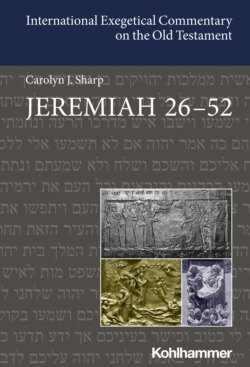Читать книгу Jeremiah 26-52 - Carolyn Sharp - Страница 19
На сайте Литреса книга снята с продажи.
Feminist Commentary
ОглавлениеThe IECOT/IEKAT commentary series has been bold in its expressed goal that contributors interweave synchronic and diachronic scholarship with engagement of newer ways of reading. These volumes by Christl Maier and myself have been designed, from the inception of the commentary series writ larger, to supply feminist commentary that draws on insights from postcolonial theory. In my view, such an approach requires carefully theorized hermeneutical and scholarly moves that are not normally performed in the genre of commentary. In some biblical commentaries, readers might encounter the following: philological and historical expertise wielded as if language and history were neutral things; silence concerning the commentator’s own hermeneutical, theological, and other commitments affecting interpretation; little attention to gender, with no apparent awareness that masculinity constitutes an important subject of analysis in historical, semantic, and literary terms and scant reference to the theorization available for decades now in gender criticism; a hegemonic summarizing approach to scholarly debates that allows little room for contestatory positions or even congenial insights in the voices of others.78 From the eighteenth century to the present, the genre of biblical commentary in Europe and North America has often been performed via hermeneutical positions distorted by androcentrism and intellectual imperialism. Julia O’Brien states in uncompromising terms a problem seen by myriad feminist and womanist scholars:
